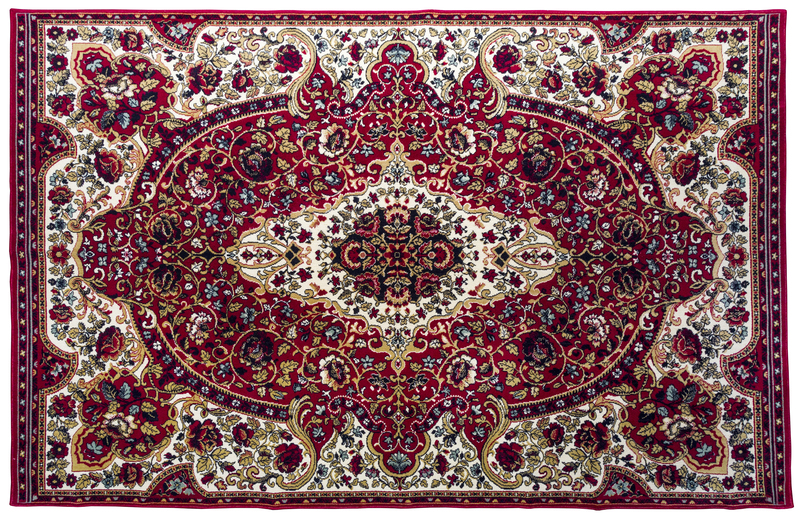Your Guide to Hassle-Free Jewellery Cleaning Methods
Posted on 25/08/2025
Your Guide to Hassle-Free Jewellery Cleaning Methods
Jewellery is more than just an accessory - it's a reflection of your personality, cherished memories, and important milestones. To keep your favourite pieces sparkling and pristine, regular cleaning is essential. However, caring for precious metals and stones shouldn't feel daunting or time-consuming. With the right jewellery cleaning methods, you can restore their brilliance with ease! In this comprehensive guide, you'll discover hassle-free jewellery cleaning techniques for every type of item, from gold rings and silver bracelets, to gemstone-encrusted earrings. Dive in and let your treasures shine!

Understanding Your Jewellery: The First Step in Easy Cleaning
Before exploring the best ways to clean your jewellery, it's crucial to understand the composition of each piece. Different metals and stones require distinct care to ensure lasting beauty. Here's a quick overview:
- Gold: Soft and prone to scratches, susceptible to chemicals and abrasives.
- Silver: Tends to tarnish easily, needs gentle polishing.
- Platinum: Durable and less reactive but still benefits from regular cleaning.
- Gemstones: Porous stones like opals and pearls are delicate, while diamonds are sturdy but can collect grime.
- Costume Jewellery: Contains plated metals and glued stones, so water exposure should be minimal.
Always check your jewellery for loose stones or damage before cleaning to prevent further issues!
Simple At-Home Jewellery Cleaning Methods
1. The Classic Soap and Water Technique
This uncomplicated process is a safe bet for most types of jewellery:
- Mix a few drops of mild dish soap in a bowl of warm water (not hot).
- Soak your jewellery for 10-20 minutes to loosen dirt and oils.
- Use a soft-bristled toothbrush to gently scrub the crevices and intricate designs.
- Rinse thoroughly in clean water and dry with a lint-free cloth.
Tip: Avoid using soap that contains moisturizers or harsh chemicals, as these can dull your precious pieces.
2. Baking Soda Paste for Tarnished Silver
Bring back the lustre of your silver jewellery with this budget-friendly method:
- Mix baking soda and water to form a thick paste.
- Apply the paste to your silver jewellery using a soft cloth or sponge.
- Gently rub, focusing on tarnished areas.
- Rinse well and dry.
This method is ideal for sterling silver rings, necklaces, bracelets, and charms.
3. Toothpaste Miracle for Stubborn Stains
Toothpaste (without gel or whitening agents) can lift persistent tarnish and grime:
- Squeeze a small amount onto a cloth or soft brush.
- Rub delicately over jewellery surfaces, avoiding soft stones or delicate settings.
- Rinse thoroughly and pat dry.
Note: This jewellery cleaning method works well for hard metals but avoid using toothpaste on pearls, opals, or costume jewellery.
4. Professional Ultrasonic Cleaners
If you own a large jewellery collection, investing in an ultrasonic jewellery cleaner can save you time and hassle:
- Add water and an approved cleaning solution to the machine's tank.
- Place your jewellery in the provided basket and start the cycle.
- Ultrasonic waves loosen dirt and debris from intricate designs and settings.
Warning: Not all gemstones and vintage jewellery are suitable for ultrasonic cleaning. Always check manufacturer instructions or consult a professional first.
5. Vinegar Soak for Sparkling Metals
For pure gold and hard stones, a vinegar soak can be highly effective:
- Immerse your jewellery in a bowl of white vinegar for 10-15 minutes.
- Gently scrub with a soft brush.
- Rinse and dry thoroughly.
*Do not use vinegar on pearls, opals, or other porous gemstones.*
DIY Jewellery Cleaning: Natural Alternatives
If you prefer eco-friendly jewellery cleaning methods, these natural remedies are perfect:
Lemon Juice & Olive Oil Shine
- Combine 1/2 cup lemon juice and 1 teaspoon olive oil.
- Dip a cloth in the mixture and polish your jewellery.
- Wipe with a clean, damp cloth and dry.
Club Soda Soak
- Soak gemstones and diamonds in club soda overnight.
- Brush gently, rinse, and dry for instant shine.
Salt and Aluminium Foil Bath for Stubborn Tarnish
- Line a bowl with aluminium foil, shiny side up.
- Add one tablespoon of salt and baking soda each, then pour in hot water.
- Place your silver items in the bath so they touch the foil. Let sit for 5-10 minutes as chemical reactions lift the tarnish off the silver and onto the foil.
- Rinse and buff dry.
These natural jewellery cleaning methods are gentle, effective, and great for regular use.
Cleaning Precious Stones and Delicate Pieces
Delicate gemstones such as pearls, opals, emeralds, and turquoise require special care. Here's how you can clean them safely:
- Wipe with a soft, damp cloth after every use to prevent build-up of oils and sweat.
- Avoid soaking. If necessary, use a mixture of lukewarm water and mild soap, apply with a soft brush, and rinse immediately.
- Dry gently by patting with a lint-free towel. Air-dry thoroughly before storage.
Remember: Never use harsh chemicals, ultrasonic cleaners, or abrasives on delicate stones or antique jewellery.
How to Maintain Clean Jewellery: Prevention is Key
Once your jewellery shines, you'll want to keep it that way for as long as possible. Here are expert tips to prevent tarnish, grime, and dullness:
- Store each piece separately in soft pouches or lined boxes to avoid scratches and tangling.
- Remove jewellery before swimming, bathing, or using cleaning products.
- Apply lotions, perfumes, and hairspray before putting on your jewellery to minimize chemical exposure.
- Wipe down items briefly with a soft cloth after each wear.
- Schedule a deep clean every few months, depending on usage.
Pro tip: Keep a small cleaning kit at home - include a gentle brush, mild soap, and polishing cloth for easy touch-ups anytime!
Common Jewellery Cleaning Mistakes to Avoid
Even the best cleaning intentions can go wrong if you're unaware of common pitfalls. Steer clear of these mistakes to keep your treasures safe:
- Using harsh chemicals like bleach or ammonia, which can corrode metals and damage stones.
- Soaking glued costume jewellery or pieces with porous stones, as moisture can dissolve adhesives or cause discoloration.
- Using abrasive pads or paper towels, which can scratch delicate surfaces.
- Ignoring loose stones or cracked settings - always inspect before and after cleaning!
- Leaving pieces to air-dry in direct sunlight, which can fade colours and weaken materials.
When to Seek Professional Jewellery Cleaning Services
Sometimes, it's best to leave cleaning to the experts, especially for:
- Antique or heirloom pieces with fragile structures.
- Jewellery with intricate, hard-to-reach designs.
- Heavily tarnished or severely grimy items.
- Annual maintenance of valuable gemstones or settings to ensure integrity.
Professional jewellers use advanced cleaning technologies, steamers, and meticulous inspection to restore pieces safely and efficiently.

FAQs: Hassle-Free Jewellery Cleaning at Home
How often should I clean my jewellery?
It depends on how frequently you wear your items. Everyday pieces like rings and necklaces should be cleaned every 1-2 weeks, while occasional use pieces can be cleaned monthly or as needed.
Can I use dish soap to clean all types of jewellery?
Yes, mild dish soap is safe for most metals and some gemstones. Nevertheless, avoid for porous stones like pearls and opals or glued costume jewellery.
What should I avoid when cleaning my jewellery?
Avoid harsh chemicals, abrasive pads, and prolonged soaking of delicate or glued pieces. When in doubt, consult care instructions specific to the type of metal and stone.
Is professional cleaning worth it?
Yes, particularly for high-value, vintage, or complex pieces! Professionals can provide a deeper clean and thorough inspection to prevent future damage.
Conclusion: Embrace Hassle-Free Jewellery Cleaning Routines
Keeping your jewellery radiant doesn't need to be complicated! With these tried-and-tested, easy jewellery cleaning methods, you can restore the natural brilliance of your rings, necklaces, earrings, and bracelets right at home. By understanding each piece's unique needs and following recommended maintenance tips, you'll enjoy sparkling treasures for years to come. Remember, when in doubt, consult a professional for cleaning and repairs, and make gentle care a part of your routine. Shine on!




